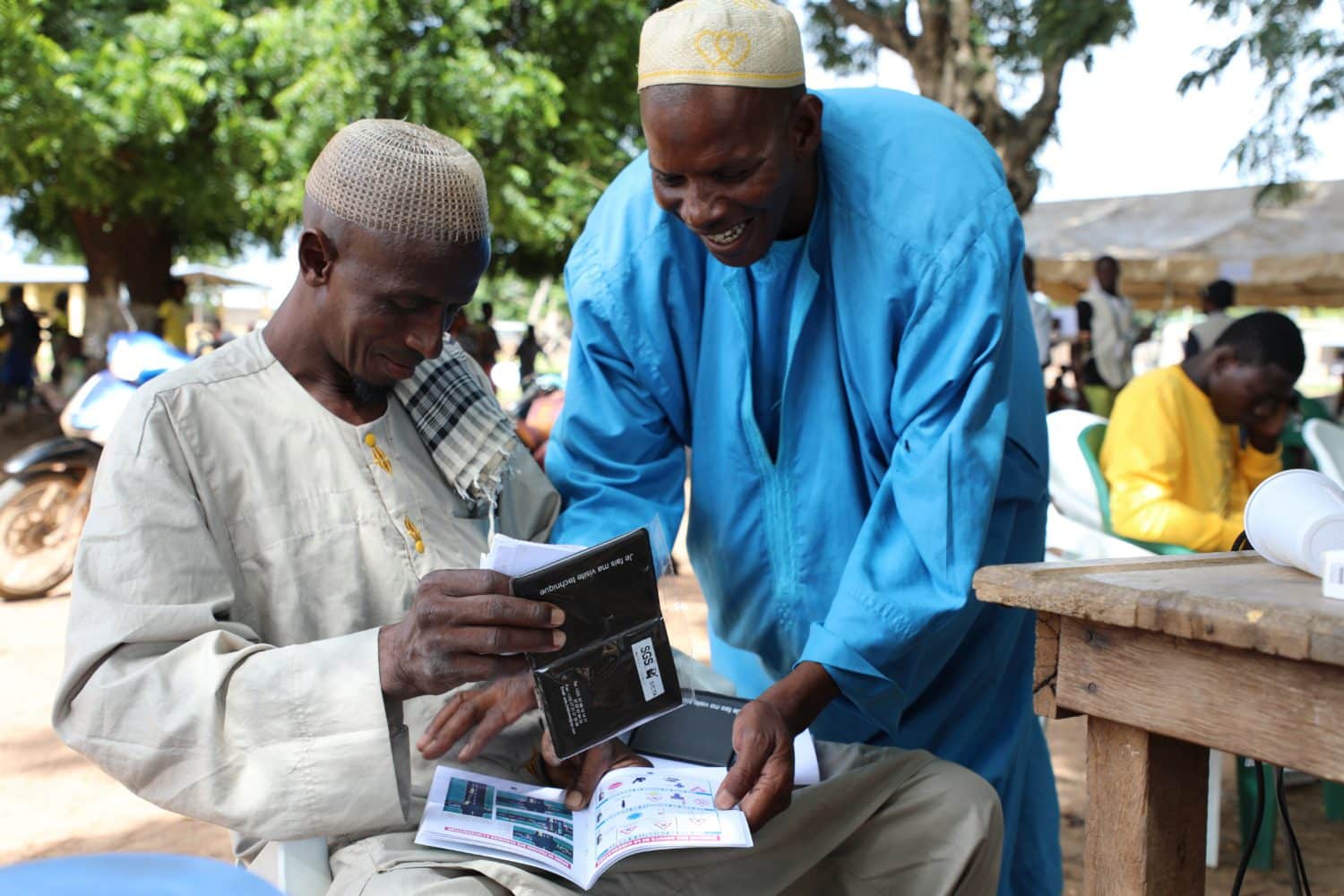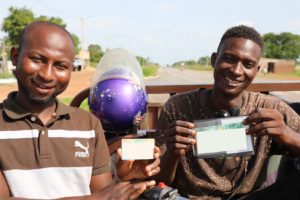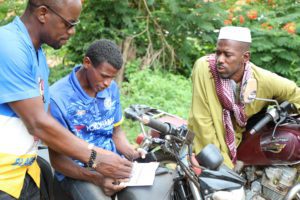

Bridging the gap to reach communities in Northern Côte d’Ivoire
The Resilience for Peace (R4P) program supports government agencies in Côte d’Ivoire in providing services to citizens in isolated areas, building trust between communities and the government, and tackling larger security issues.

In the Northern border areas of Côte d’Ivoire, public services have been slow to resume following a decade of civil conflict. Community members with incomplete vehicle paperwork often incur fees when passing road security checkpoints. These checkpoints are a source of mistrust between the population and the security forces as community members feel that security forces use the lack of papers to obtain lucrative kick-backs. The lack of trust between security forces and the population results in communities’ increased reluctancy to share early warning signs of violence with security and defense forces.
The Resilience for Peace (R4P) project partnered with Ivorian authorities and launched the Mobile One-Stop Service Desk (Guichet Unique Mobile – GUM) to facilitate the acquisition of vehicle paperwork. The GUM has changed the way local government interacts with the population and delivers services. In the villages of Sokolo and Kong in the Tchologo region, the GUM was a very welcomed initiative by residents. The mayor of Kong said that “Today, what would have been done in Korhogo (180 km away) was done in Kong, in one day, and in a single office.”
A Fulani herder in Sokolo expressed his determination to register his motorcycle: “I am glad for this opportunity to get these documents to move freely. I had no money on me, but after you explained the process to me, I quickly went home to sell one of my cattle. Now I can pay for registration and my driver’s license.” Cattle is of high value to Fulani herders, and this shows the herder’s willingness to follow the law and get his paperwork in order.
These positive experiences show that frustration with limited state services can be overcome through support to government services and sharing information with populations. Earlier this year, R4P organized a pilot GUM in the Bounkani region, which resulted in 3,002 applications for vehicle paperwork. The GUM in the Tchologo region received 851 applications.

New dynamics among government employees
During the pilot stage, state employees received and processed applications, but did not agree to do work beyond their scope or to extend their work hours to allow farmers and herders to receive services earlier or later.]
During the second GUM in the Tchologo region, state employees began to understand that flexibility and problem-solving increases effective service delivery, as well as the visibility of the GUM via positive testimonies. This resulted in government employees extending their work hours and becoming more invested in reaching those who might require their services.
Through this initiative, residents in Tchologo understood the importance of obtaining legal documentation and were eager to apply through the GUM. Many accounts of the event showcased both communities’ interest and government’s engagement toward improving service delivery. For example, an applicant arrived in the rain with his application forms wet. His papers were stuck together, and GUM employees initially advised him to dry the papers out and return the next day. Instead, he laid his wet forms and supporting documents on a chair in the office and started fanning them to dry. A GUM team member invited the applicant inside his car parked nearby, where they turned on the air conditioner, quickly dried the documents, and returned to submit his application.
